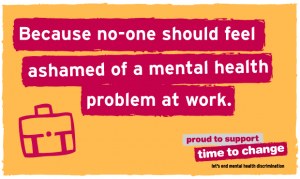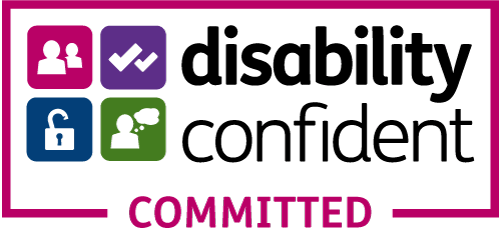The Un-Pursuit of Happiness?
Rather than seeking active happiness pursuits it would appear far more beneficial to develop a sense of ‘ataraxia’ : calmness untroubled by mental or emotional disquiet or as I prefer to see it ‘tranquillity’. I came to this conclusion after reading an article in The Guardian regarding ‘un-pursuing happiness’ – Seems odd – right?
In these times of uncertainty, when we actively seek out happiness pursuits, we can become disappointed as unforeseen restrictions are placed upon us. But whilst reflecting on this, I guess disappointment can happen at any time even without a pandemic.
Maybe we could focus our attention and practise things that allow us to feel more tranquil in the long run. Which brings me on to ‘what things’ we can practice?
Stop taking everything for granted and practise gratitude. As I discussed with my son who was distressing about his fractured and dislocated shoulder – at least your mother is here to make you an omelette and wash your hair and it could have been your foot ‘to boot’. Gratitude isn’t some big new idea – it’s appreciation and being thankful. It’s about paying attention to what we (not everyone else) have and what we know helps us on a daily basis. Simple things like ‘enough milk for my tea this morning’ or ‘You answered the phone when I reached out’.
Become mentally flexible in situations. Riding the highs and lows and not attaching any particular mindset to either – in fact attaching no ‘mind’ would be more beneficial and although we are just mere mortals this can still be achieved by being aware of our thoughts at all times. Trying to ignore negative thoughts/situation doesn’t make them go away and conversely focusing too much on positive thoughts doesn’t allow them to stay forever – we call this life.
What about developing a ‘problem solving’ and ‘curious’ attitude, even if you have no idea about how to fix a computer issue (I’m talking about myself here). Nowadays, my first thought is normally – ‘Can I sort this? Could I find out how to? It’s being curious about things, which can help when we are striving to adopt a non-fear of failure approach or ‘growth mindset’ – Why did the cream cheese frosting turn out so runny? Add a bit of research and maybe a bit of discussion with others and you might find that you can fix the problem – Ahhhh, if you use less than totally full fat cream cheese and you overbeat the icing sugar (icing sugar likes to become liquidy if overbeaten) and add too much lemon juice rather than zest – you get sloppy frosting and that’s no good if your cake is as dense as lead roofing.
Experiencing different situations and learning new things regardless of whether we fail or not (as already mentioned – growth mindset). There is so much out there that we can experience, even from our own homes.
Get online and see what you can experience. I’ve ‘virtually’ been to a classical concert with Philharmonia, attended a few courses from Treadwells, learnt about the history of paganism and learnt how to make my own incense (who knew you could burn household herbs and spices), sat in an audience with His Holiness (or as I like to call him – Wonderfulness) The Dalai Lama, Daryl Edwards, Ruby Wax, Jon Kabat-Zinn and others from Action for Happiness events. I watched two brilliant ‘live’ events by Eddie Izzard (WUNDERBAR) and Russell Brand (Our Little Lives – Shakespeare and Me). And talking of the Bard – I felt very privileged to watch the rehearsals and live dress rehearsal of Henry VI and be an active part of the performance ‘Dream’. Attending some of these functions would never have entered my mind if it had not been for the restraints of the virus and therefore an enforced need to look elsewhere for entertainment.
Engaging your inner child – although ‘inner child’ has, like a lot of terms in MH, become quite trendy, – It’s simply about being silly and playful and not taking ourselves so seriously. Sometimes as adults we think that we are looked to for those ‘adult’ attributes otherwise we may be less worthwhile members of society. If you think about the characteristics of children, they are really quite perfect. They don’t discriminate or judge (perhaps broccoli), they are very accepting, affectionate and loving – but they also know exactly how to engage with play and take themselves off on adventures. Whiling-away hours building dams and fighting the cause for the greater good and they never complain about what you have dressed them in. Of course, I am talking about kids up to a certain age and those who have not been unduly messed up and conditioned by adults – as Eckhart Tolle says when discussing the negative mind “Negativity is totally unnatural…Have you come across a depressed dolphin, a frog that has a problem with self-esteem, a cat that cannot relax, or a bird that carries hatred and resentment? The only animals that may occasionally experience something akin to negativity or show signs of neurotic behaviour are those that live in close contact with humans and so link into the humans mind and its insanity.” – I think the same can be said for most children. And they love to laugh and part of that is laughing at things being silly and being silly themselves – innocent silliness. Finally, whilst I’m extoling the attributes of children, they do not need a reason to seek out exercise because most of the time they call it playing – Check out Daryl Edwards Primal Play.
Lastly, I’d like chat about the benefits, as I see it, of listening to Solfeggio frequency music (see links below).
I’ve been listening to this music, of which there are many examples on YouTube, for about 6 months. You can listen whilst meditating or not meditating (always our choice). This frequency music has been linked to many mental and physical health benefits and therefore you can choose which ‘frequency/frequencies’ best suit your needs. This is how I tend to approach the music for the day when I meditate. It allows me to get into a meditative state quickly and induces feelings of blissfulness and calm during and continuing into my day. Great – Yeah? Well, something occurred to me not very long ago – Some days the continued feeling (after meditating) of tranquillity and bliss seemed to be drowned out by a petulant entity that seemingly delighted in producing negative thoughts. To quieten this propaganda, I would tell my emotional brain (my chimp) to back off but in doing so I would often be left feeling less tranquil AND irritated that the thoughts had ‘visited’ in the first place. Afterall, hadn’t I just quietened my mind and hadn’t I just been observing my thoughts? Upon reflection (reflecting, not analysing, reflecting) I was reminded that the thoughts were only visitors and that I could use a gentler, loving and kind approach to ask them to take their leave – they are after all my DNA, my Relatives, ME. I think that when we start out or continue on our lifelong learning journey, some days can seem like the first day, and a reminder to be self-compassionate and loving and kind and affectionate towards ourselves on those days will help to ease the ‘no man’s land’ of an obtrusive mindset. However, it is the ‘tools’ the ‘practices’ that will ultimately release us from ourselves and allow happiness to flow.
https://meditativemind.org/benefits-of-music-based-on-7-solfeggio-frequencies/
https://www.naturehealingsociety.com/articles/solfeggio/
Jackie Bean
Director of Operations




